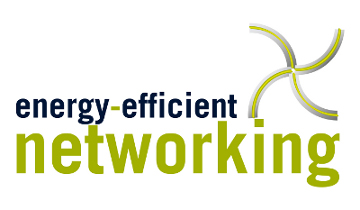IMDEA Networks

Institute IMDEA Networks launches Energy Efficient Networks program
05 February 2012

The new research program, to be carried out in cooperation with Universidad Carlos III de Madrid, will develop models and technologies for reducing power consumption across LAN, WAN and the data center.
Recent studies have shown that the energy consumed by Information and Communications Technology (ICT) has now grown to a significant proportion of the world’s energy usage, generating keen interest in energy efficiency by telecommunications network operators, ISPs and content providers. Reductions in the power consumed by data centers can make a direct contribution to a company’s bottom line, as well as providing broader benefits in the areas of corporate social responsibility and the environment. To that end, Institute IMDEA Networks and Universidad Carlos III de Madrid (UC3M) have launched a new program funded by the Spanish Ministry of Science and Innovation (Ministerio de Ciencia e Innovación, MICINN) aimed at designing algorithms and techniques for reducing the energy consumption of communications systems without significantly affecting service quality. The program, called Energy Efficient Networks (Redes con eficiencia energética), will use a cross-layer approach including algorithms and techniques to be applied at link, network transport and application layers. It will be carried out from January 2012 to December 2014.
The research will be carried out at two levels: on the one hand at the link, network and transport layers; and on the other hand at the application layer. In approaching the network layer, researchers will define energy consumption and traffic models for network elements in set-ups such as LAN, WAN and data centers, allowing them to look for improvements that apply across different usage models. Applications such as content distribution span these different areas, so this type of joint optimization should lead to even better results. Researchers will create design techniques such as routing and scheduling algorithms to minimize the overall energy consumption, analyzing the performance of the developed systems and evaluating them via simulation and testbed experiments. The resulting techniques will also be evaluated for how they might be able to save energy in non-networking areas, such as in operating appliances or charging electric vehicles, which pose challenges similar to those encountered in the communications world.
The project will also look at the application layer, using a mixture of theoretical, simulation and Internet measurement techniques, and with a particular attention to content distribution applications, since they make up the majority of current Internet traffic. In this area the project will have three related goals: the design of content distribution scheduling algorithms that minimize energy wastage; the design of an energy-efficient peer-to-peer (P2P) client; and the implementation of the P2P client in a prototype that will be made publicly available. Researchers will study the energy consumption/performance trade-offs of different content distribution infrastructures for User Generated Content (UGC) — for instance, centralized delivery vs. P2P — utilizing real data traces from well-known applications such as YouTube and social networks like Facebook and Twitter. Based on the results of this study the researchers will design a new content distribution architecture for reducing the energy wastage of UGC distribution.
The Energy Efficient Networks project is part of Institute IMDEA Networks’ broader commitment to research aimed at solving real-world problems and improving social welfare. It builds on the Institute’s wider research into energy efficiency, including the upcoming e-Energy 2012 conference, as well as a specific focus on more efficient ICT systems and the use of ICT in promoting wider energy usage reductions. One of the Institute’s ongoing research projects is Green Network, carried out in partnership with the institutions in Spain, the United States and China and focusing on theories and techniques for globally reducing energy consumption at the network level. IMDEA Networks is also active in TREND (Towards Real Energy-Efficient Network Design), a European Network of Excellence on Energy Efficient Networking. TREND brings together major players in European networking, including manufacturers, operators and research centers, around the design of energy-efficient, scalable and sustainable future networks.


Recent Comments